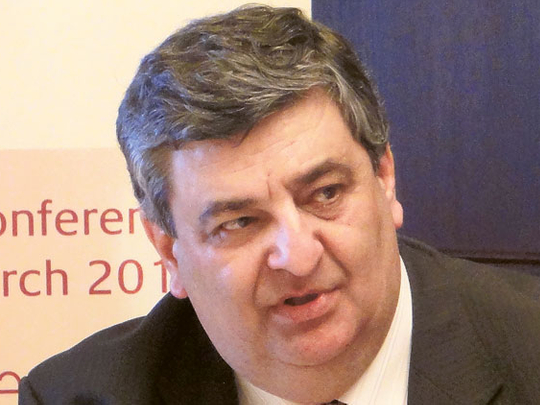
Dubai: Regular sneezing, runny nose, nasal congestion, itchy eyes, cough and headaches — these are just symptoms of allergic rhinitis which affects one in three adults in the UAE.
But beyond these symptoms lie burdens patients carry; and the numbers of affected people are projected to increase, doctors have warned.
Around the world, an estimated 400 million people are affected by this disease. And by 2020, a recent study predicted that one in two people up to 14 years of age worldwide may be affected.
"What we had been seeing and I could tell you this from the work that we've done is that the incidence of allergic rhinitis or nasal allergy is increasing worldwide. Primarily, we see it mostly in developed and developing countries. The highest rates of allergies now are in places like the Middle East, areas like Brazil, other areas of Asia and it's kind of steadying, though still increasing, in areas of Europe, North America, US, Canada," Dr Michael Steven Blaiss, member of the board of directors of the World Allergy Organisation, told Gulf News on the sidelines of the UAE launch of a Nycomed product called Omnaris, a nasal spray for the management of allergic rhinitis.
Not life threatening
While many people find allergic rhinitis unimportant as they are not life threatening, the burdens patients carry are not easy.
"We tend to look at the disease as a simple nuisance that doesn't cause a major problem like a cardiac arrest or a cardiac disease. But, it is estimated that around $20 billion (Dh73.27 billion) each year is spent directly or indirectly for medical cost, time lost for work or decreased productivity," Dr Usama Al Hadi, clinical professor of otolaryngology, head and neck surgery at the American University of Beirut Medical Centre, said.
In a Nycomed-sponsored survey called ‘Allergies in the Middle East', more than half of the employed patients said that allergic rhinitis has affected their job productivity by 25 per cent. This first-of-its-kind survey interviewed 501 patients from five countries in the Middle East, including the UAE, Saudi Arabia, Lebanon, and Egypt.
During times of allergy attacks, four in 10 patients said they experience fatigue while seven out of 10 reported feeling "miserable during the worst month of their allergy symptoms."
But besides these two aspects, there are more reasons to give allergic rhinitis primary importance to treat and control, Dr Blaiss said.
"The other thing is it leads to other medical problems. Patients with allergic rhinitis have more sinus problems, children have more chronic ear problems, higher rate of sleep apnea because of a severe nasal congestion, and patients are three times more likely to develop asthma," Dr Blaiss said.
A number of factors — increase in outdoor areas and outdoor pollution, climate change, among others — have caused the increase in allergic rhinitis around the globe.












